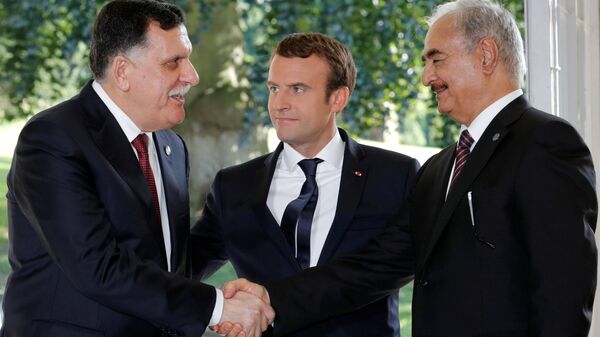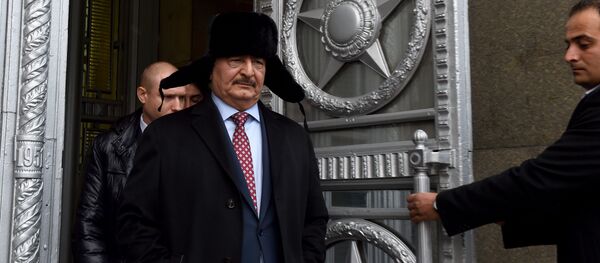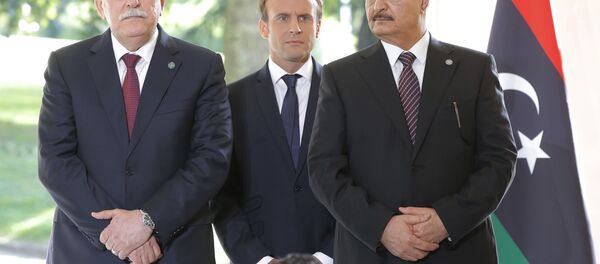Field Marshal Khalifa Haftar, Commander of the Libyan National Army (LNA) in eastern Libya and Fayez Al Sarraj, the Prime Minister of Libya’s Tripoli-based Government of National Accord (GNA) appear to have made progress after agreeing on a ceasefire and elections for next year during a recent meeting hosted by French President Emmanuel Macron in Paris.
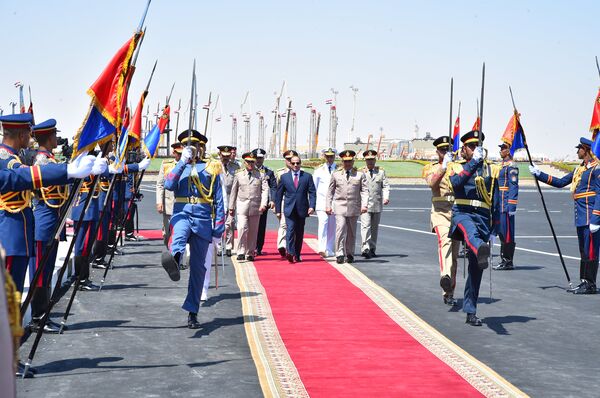
In a separate development, neighboring Egypt opened a new military base close to the Libyan border. US-based private intelligence firm Soufan Group, which reported on the issue, noted that "the size and location of the base are a testament to the significance of the challenge across the border in Libya, which the Egyptian government considers both a serious national security threat, and an opportunity for strategic expansion."
Sputnik Radio discussed the developments with Rhiannon Smith, Managing Director of the US-registered consulting company Libya-Analysis, who explained how these two events are interconnected and what the real significance of Egypt's recent move is.
"The opening of a new military base shows Egypt's real concern over its security along its vast border with Libya. Egypt shares a long border with Libya and any kind of destabilization in security in Libya could easily affect Egypt. With regards to Libyan General Khalifa Haftar, who holds military power in eastern Libya, it means that Egypt really sees him as an ally who can help protect Egypt's interests in the east and prevent Egyptian fighters from potentially using Libyan space to train or to conduct attacks. It will also prevent any insecurity in Libya from coming across into Egypt," she told Sputnik.
Formally, Egypt does recognize the Government of National Accord, as do many international actors, the expert said. They also support the Libyan Political Agreement, which is the current peace framework. However, even though they formally support these structures, they are very much aligned with Khalifa Haftar in the east and they provide him with a variety of military and financial support to him.
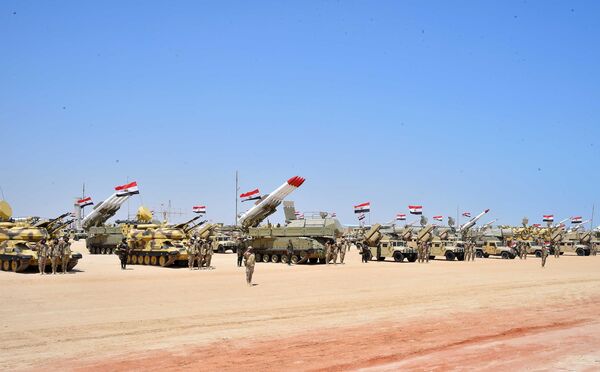
The main reason is that Khalifa Haftar is a kind of authoritarian strong man who he has been fighting against terrorists. These include not only jihadist groups such as Daesh and others, but also various Islamist military groups who oppose him. This really aligns with the strong anti-terror approach of Egypt's President al-Sisi, therefore Egypt really sees in Haftar someone who will protect their interests and who they feel would put security over democratic freedom; this aligns with Egypt.
Rhiannon Smith also commented on how it is interconnected with the deal the two rival leaders recently made in Paris.
"I think that in terms of where Haftar is on international stage and in terms of his political legitimacy, he has strengthened a great deal," she added.
However the expert explained what the danger of that is: it means that there is far less reason for Khalifa Haftar to compromise, to negotiate and he may well be strengthened to continue his military campaign, as he has always said he believes in military solutions rather than political ones.
With regards to the signed ceasefire deal, she noted that "although Haftar and Sarraj agreed to a ceasefire, however, the forces they control are not actually engaged in a direct conflict anywhere in Libya at this point. However, there is a myriad of different competing military and political factions in Libya, who are not always represented by these two political figures."
Hence, the Libyan ceasefire deal "looks great on paper but not too much on the ground," she finally concluded.

